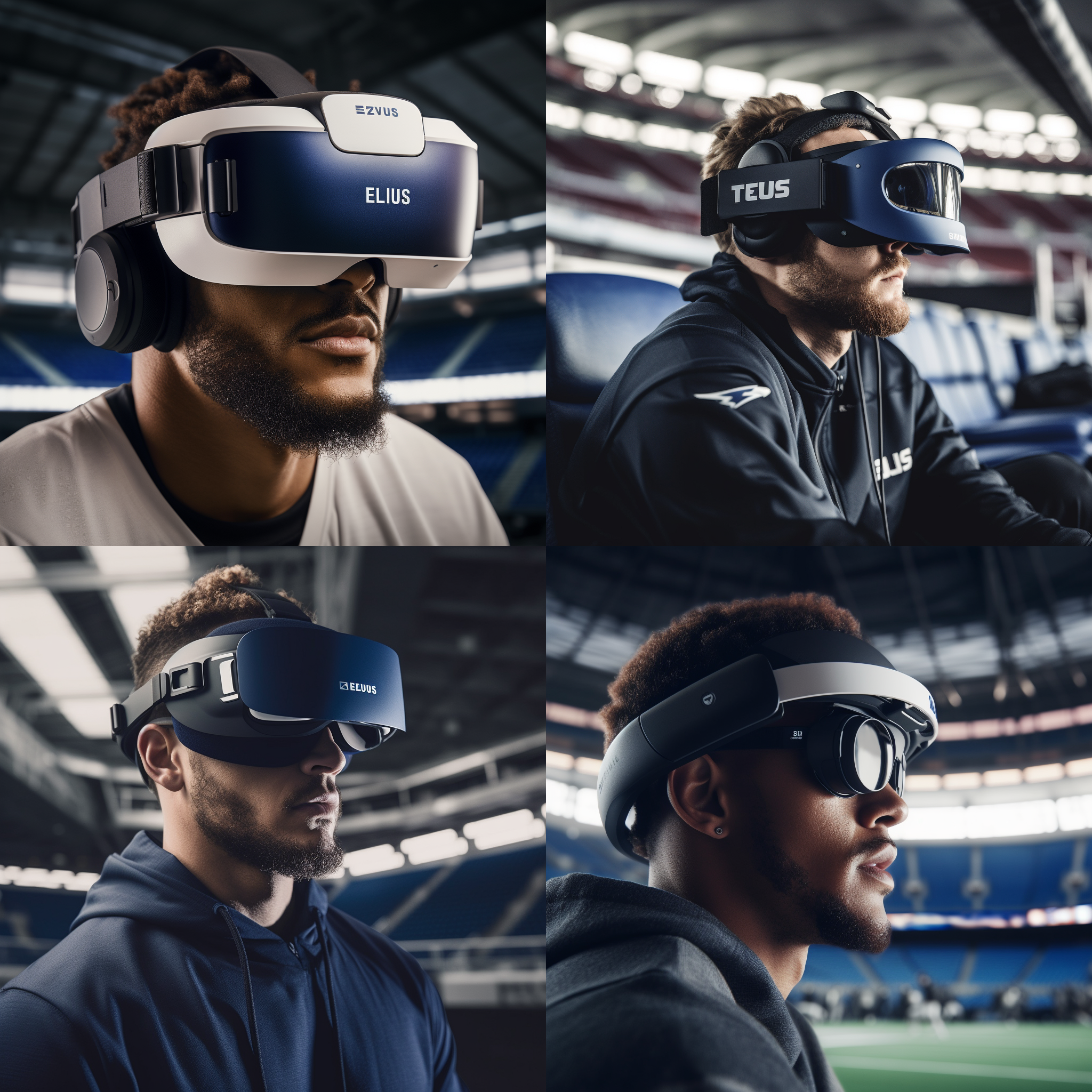Last Updated on: 22nd November 2023, 03:22 pm
Artificial intelligence has already transformed many industries, and sports is no exception. With AI’s ability to analyze vast amounts of data and provide insights into player and team performance, it’s changing the way we talk about and analyze sports on television. In this article, we’ll explore how AI impacts sports talk shows and what the future might hold.
According to Taylor Bloom, co-founder and CEO of SportTechie, “AI is going to revolutionize the way that we talk about sports. As this technology becomes more advanced, we’re going to see it play an even bigger role in sports talk shows.”
Jamie Horowitz, the creator and executive producer of many of the most impactful sports talk shows in the past 20 years, including ESPN’s First Take and SportsNation, as well as FS1’s Undisputed and The Herd, thinks it will happen in stages, rather than all at once.
“We’re already seeing AI generating highlights, analyzing stats, and writing news articles,” said Horowitz who also helped create the ManningCast with Peyton and Eli Manning for ESPN. ”AI will probably impact sports tv in ways that make the viewing experience better for fans without fans realizing that AI played a role. It seems like in the years ahead, AI will be a tool nearly everyone in sports television will eventually use in some form.”
Nancy Hensley, chief product and marketing officer at sports data and analytics company Stats Perform, believes speed will be the first thing that AI impacts. She wrote, “AI can help with key insights and visualizations. AI and machine learning can automatically detect formation patterns that could take humans hours to do, allowing sports broadcasters, analysts, and fans to find the hidden story faster than ever.”
The efficiency in highlight production that Horowitz and Hensley allude to is well underway. WSC Sports already helps automate the production of real-time video clips to platforms and social media sites by using AI to automatically tag and generate highlights. Among its existing media partners are ESPN, WB Discovery, and DAZN.
Andre Torsvik, vice president, marketing strategy at Vizrt Group, says this speed is not just for the sake of speed, but will have an impact on how the game is broadcast because the speed of analysis will allow fans to hear about patterns in ways they hadn’t before.
“Sports broadcasts depend on the availability of data and the ability of the storyteller to utilize the data for analysis and engaging narratives,” explained Torsvik. “AI processes mammoth quantities of data and efficiently pulls out key stats, patterns, and — most importantly — real-time predictions of plays, matches, results, and more. By transferring the analysis to the screen, producers and broadcasters enrich the viewing experience for first- and second-screen audiences.”
Jamie Horowitz agrees with Torsvik and added: “AI will be particularly impactful for shows that focus on player and team statistics and where hosts and analysts look to identify trends and historical commonalities.”
While AI is currently used to analyze sports data, it may soon be instrumental in analyzing viewer data as well—and at a level that has never before been achieved.
Apple’s new Vision Pro goggles, immersive AR/VR technology scheduled for an early 2024 release, are expected to change the way sports fans interact with their favorite teams, players, and media personalities. Fans will be able to sit courtside from the comfort of their own homes, view helmet cams as if they were in the driver’s seat, or watch multiple games at a time without the need for a TV.
Apple Vision Pro is also predicted to use AI to collect an unprecedented amount of data on the viewer in order to provide them with personalized experiences. This data includes eye movement, brain activity, blood pressure, muscle activity, and more. This information would enable sports media producers to better predict the emotional responses of viewers and provide them with content that they find engaging, amusing, or controversial.
Sterling Crispin, a Neurotechnology Prototyping Researcher in the Technology Development Group at Apple, was a key member of the Vision Pro development team. He was involved in developing the goggles’ behavior-predicting AI. “A lot of the work I did involved detecting the mental state of users based on data from their body and brain when they were in immersive experiences,” he said on Twitter. “AI models are trying to predict if you are feeling curious, mind wandering, scared, paying attention, remembering a past experience, or some other cognitive state.”
While Crispin is unsure to what extent this AI technology will be present in the first version of Vision Pro, the potential for the sports media industry is clear. Imagine if broadcasters knew which stories elicited boredom, laughter, or curiosity from viewers based on AI analysis of biometric data. Or, what if they had insight into how viewers reacted to the names of players or teams at the very moment they were mentioned on a sports commentary program?
This AI analysis could be used to give viewers more of what they want and less of what bores them. It could also be used to build more meaningful relationships between viewers, media personalities, and the teams and players that they love.
This technology is in its early stages, but the sports industry is expected to be one of the first to adopt it. Disney’s CEO Bob Iger appeared at the unveiling of the Apple Vision Pro to tease some of its media-related possibilities. Reimagined VR/AR sports experiences were a highlight of the ESPN owner’s presentation. It’s fair to say that sports fans will be eager to adopt this technology in the very near future.
Everyone seems to agree that AI is playing an increasingly important role in sports TV, from generating highlights to analyzing player and team performance. And soon, it may be able to translate the biometric data of millions of viewers into key performance statistics. By utilizing machine learning algorithms, AI will be able to identify patterns and insights that might not be immediately apparent to human analysts. This will allow sports broadcasters to create more engaging content for their audiences. As AI technology continues to advance, we can expect it to have an even greater impact on the way we consume and interact with sports media.







